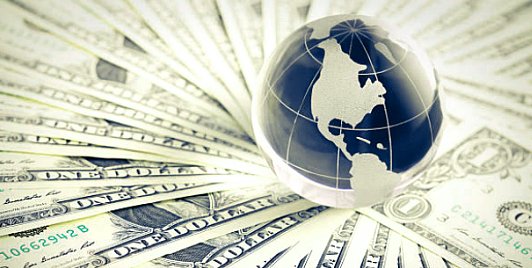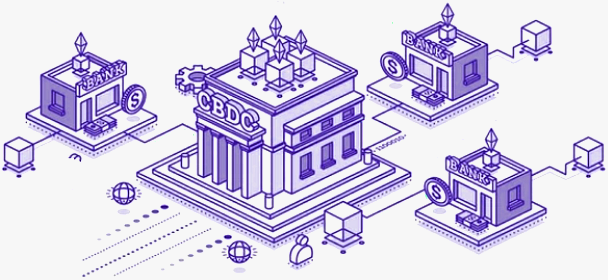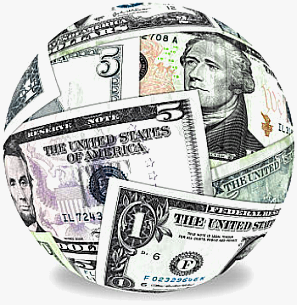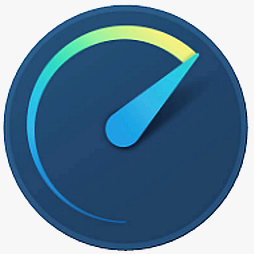Accredited InvestorsAltcoinAnatoli UnitskyAnti-Money Laundering (AML) In CryptoAPIArbitrageArtCoin TokenArticle DirectoryASICAuction Terminology GlossaryBasics of Stock Market InvestingBear MarketBest Crypto Payment Provider In the WorldBitcoinBlockchainBlockchain ConfirmationBlockchain Consensus MechanismBlockchain ForkBlockchain GlossaryBored Ape Yacht ClubBuild a Business That OutperformsBull MarketBuying SkyWay SharesByzantine Fault Tolerance (BFT) ExplainedCasascius CoinCentral Bank Digital Currency (CBDC)Centralized Crypto ExchangeCoinCoinsetCold WalletCollateralCommodity Futures Trading Commission (CFTC)Cross-Chain TechnologyCRUCrypto ExchangeCrypto GlossaryCrypto JokesCrypto Terms to KnowCrypto TickerCryptocurrencyCryptographyCryptojackingCryptounit BlockchainCryptounit GlossaryCryptounit ProgramdApp (Decentralized Application)Dead CoinDecentralized Exchange (DEX)Decentralized Finance (DeFi)Difference Between Bitcoin and EthereumDifferent Ways of Investing MoneyDigital CurrencyDistributed LedgerDo Your Own Research (DYOR)Dollar Cost Averaging (DCA)Dow Jones Industrial Average (DJIA)EncryptionERC-20ERC-721EthereumEvoScentFear Of Missing Out (FOMO)Fear, Uncertainty and Doubt (FUD)Fiat MoneyFNT Fintech CompanyGenesis BlockGlobal Unit PayGlossary of Banking TermsGlossary of Business TermsGlossary of Financial TermsHalvingHODLHot WalletHow Do I Start InvestingHow Rich is Satoshi Nakamoto?How to Create a BlockchainHow to Find Private InvestorsHow to Get Into FintechHow to Program Smart ContractsI Am Thrilled to Be a Part of This Global ProjectInitial Coin Offering (ICO)Initial Public Offering (IPO)Initial Token Offering (ITO)Innovation Basalt TechnologyInnovative Transportation TechnologiesInternational Bank Account Number (IBAN)Investing in Gold Mining StocksInvesting in Gold MiningJagerJoy of Missing Out (JOMO)Know Your Customer (KYC)LedgerLiquidity in CryptocurrencyMaker and Taker Fees in Crypto TradingMarket Capitalization (Market Cap)Meme CoinMetal Credit CardMetaMaskMillenials Now Have Access to Generational WealthMy Best Investment EverNew Digital EvolutionNFT GlossaryOff-Chain TransactionsOn-Chain TransactionsOpen Edition NFTPeer-to-Peer (P2P)Personal Loan GlossaryProbably the Best STO on the MarketProof of Stake (PoS)Real Estate Glossary of TermsReal Estate Investing GlossaryRebase TokenSecurities and Exchange Commission (SEC)Security Token ExchangesSecurity Token Offering (STO)Soulbound Decentralized Identities for Security TokensSoulbound ID Launch by Stobox Proves a SuccessSoulbound TokensStoboxStock Market GlossaryTestimonialsTether Platform and Token (USDT)UnitEx ExchangeUnitsky String TechnologiesUNTBUSDUValidatorWe Started Investing When We Were 25What are Blue Chip NFT?What are Blue Chip Stocks?What are Crypto Assets?What are Crypto Smart Contracts?What are CryptoPunks NFT?What are Digital Assets?What are Digital Collectibles?What are Gas Fees?What are Gas Wars?What are Hashmasks?What are Non Fungible Tokens?What are Non-Sufficient Funds (NSF)?What are Soulbound Tokens (SBT)?What are Stablecoins in Crypto?What are Transactions Per Second (TPS)?What are Utility NFTs?What are Utility Tokens?What Does Burning Crypto Mean?What Does Diamond Hands Mean?What Does Paper Hands Mean?What Does To The Moon Mean?What Does WAGMI Mean?What Happened to Satoshi Nakamoto?What is a 51% Attack?What is a Baby Boomer?What is a Backlink?What is a Banner?What is a Barcode?What is a Bid-Ask Spread in Crypto?What is a Block in Blockchain?What is a Block Reward?What is a Blockchain Address?What is a Blockchain Node?What is a Blockchain Oracle?What is a Blog?What is a Bond?What is a Bot?What is a Broker?What is a Business Accelerator?What is a Cash Cow?What is a Commercial Bank?What is a Commodity?What is a Con?What is a Credit?What is a Credit Limit?What is a Credit Rating?What is a Crypto Airdrop?What is a Crypto Bridge?What is a Crypto Scam?What is a Crypto Token?What is a Crypto Wallet?What is a Crypto Whale?What is a Crypto Winter?What is a Cryptocurrency Public Ledger?What is a Cryptocurrency Roadmap?What is a DAO?What is a Dark Pool?What is a Day Trader?What is a Dead Cat Bounce?What is a Default?What is a Derivative?What is a Digital Credit Card?What is a Fiscal Quarter?What is a Fungible Token?What is a Governance Token?What is a Grace Period?What is a Hard Fork?What is a Hot Wallet?What is a Hybrid Blockchain?What is a Hybrid PoW/PoS?What is a Joint Account?What is a Market Cap?What is a Merkle Tree in Blockchain?What is a Mining Farm?What is a Nonce? What is a PFP NFT?What is a POS System?What is a Prepaid Card?What is a Private Blockchain?What is a Private Key?What is a Public Blockchain?What is a Public Key?What is a Reserve Currency?What is a Ring Signature?What is a Routing Number?What is a Rug Pull in Crypto?What is a Safe Deposit Box?What is a Satoshi?What is a Security Token?What is a Seed Phrase?What is a Shitcoin?What is a Sidechain?What is a Soft Fork?What is a Spot Market?What is a State Bank?What is a SWIFT Code?What is a Tax Identification Number (TIN)?What is a Time Deposit?What is a Transaction Account?What is a Variable Interest Rate?What is a Virtual Assistant (VA)?What is a Virtual Card?What is a Virtual Currency?What is a Visa Card?What is a Whitelist in Crypto?What is a Whitepaper?What is Accounts Payable (AP)?What is AMA in Crypto?What is Amortization?What is an Accrual?What is an ACH Transfer?What is an Actuary?What is an Addendum?What is an Algorithm?What is an Angel Investor?What is an Annuity?What is an Asset?What is an ATM?What is an Atomic Swap?What is an Audit?What is an Avatar?What is an EIN?What is an Embargo?What is an Entrepreneur?What is an IDO (Initial Dex Offering)?What is an Interest Rate?What is an Internet cookie?What is an Investment Bank?What is an NFT Drop?What is an NFT Floor Price?What is an Ommer Block?What is an Orphan Block?What is an Outstanding Check?What is an Overdraft?What is Artificial Intelligence (AI)?What is B2B (Business-to-Business)?What is B2G (Business-to-Government)?What is Bartering?What is Bitcoin Dominance?What is Bitcoin Pizza Day?What is Blockchain Immutability?What is Blockchain Used For?What is BRICS?What is Business-to-Consumer (B2C)?What is C2C (Customer to Customer)?What is Capitalism?What is Catfishing?What is CFD Trading?What is Check Kiting?What is Cloud Mining?What is Communism?What is Content Marketing?What is Decentralization in Blockchain?What is DeFi in Crypto?What is Delisting?What is Depreciation?What is Digital Marketing?What is Diversification?What is Double Spending?What is Dumb Money?What is Dumping?What is Earnings Per Share (EPS)?What is Economics?What is Email Marketing?What is Equity?What is Etherscan?What is Fintech?What is Foreign currency?What is Forex?What is Fundamental Analysis (FA)?What is GameFi?What is Generative Art NFT?What is Gwei?What is Hard Currency?What is Hash Rate?What is Hashing in Blockchain?What is Inflation?What is Initial Game Offering (IGO)?What is Interest?What is Interest Income?What is Mainnet?What is Mastercard?What is Metaverse in Crypto?What is Mining in Cryptocurrency?What is Minting NFT?What is Mobile Banking?What is Money Laundering?What is NFT Alpha?What is NFT Metadata?What is NFT Rarity?What is NGMI Meaning?What is Nominal Interest Rate?What is Online Banking?What is Open-End Credit?What is OpenSea NFT Marketplace?What is Personal Identification Number (PIN)?What is Play-to-Earn?What is Polygon?What is Proof of Authority (PoA)?What is Proof of Work (PoW)?What is Public Key Cryptography?What is Pump and Dump?What is Quantum Computing?What is Refinancing?What is Retail Banking?What is Ripple?What is Sharding?What is Slippage in Crypto?What is Smart Money?What is Solvency?What is Soulbound ID?What is SSL?What is Staking in Cryptocurrency?What is Technical Analysis (TA)?What is Testnet?What is the Ask Price?What is the Better Business Bureau (BBB)?What is the Bid Price?What is the Dark Web?What is the InterPlanetary File System (IPFS)?What is the Gold Standard?What is the Lightning Network?What is the Prime Rate?What is the Sandbox?What is the Secondary Market?What is the World Bank?What is Tier 1 Capital?What is Tokenomics?What is TRC-20?What is Universal Banking?What is Unspent Transaction Output (UTXO)?What is Usury?What is Volatility in Crypto?What is Wash Trading?What is Web3?What is Whisper?What is XRP?What is Zero-Knowledge Proof (ZKP)?Who is Beeple?Who is Satoshi Nakamoto?Who is Vitalik Buterin?Why Tokenization is a Safe HavenWhy You Should Try Your Hand at Trading
What is the World Bank?
- Home
- Glossary of Banking Terms
- What is the World Bank?
The World Bank is a global financial organization that offers loans and grants to governments in need.

It prides itself on being a distinctive institution that fosters partnerships to alleviate poverty and promote economic growth.
What is the World Bank?
Established in 1944, it is a financial institution that aims to promote sustainable economic development and poverty reduction in developing countries. It is made up of two main institutions, the International Bank for Reconstruction and Development (IBRD) and the International Development Association (IDA), which provide loans and other financial assistance to middle-income and low-income countries, respectively.
Other organizations within the World Bank include the International Finance Corporation (IFC), which provides funding and advice to private sector businesses in developing countries, and the Multilateral Investment Guarantee Agency (MIGA), which provides political risk insurance to investors in developing countries.
The World Bank's mission is to support economic development while reducing poverty. It provides financing and technical assistance to countries in sectors such as agriculture, education, health, infrastructure, and energy. Additionally, the Bank works to promote good governance, fight corruption, and protect the environment.
In addition to its lending activities, the World Bank also conducts research and analysis on development issues and provides policy advice and technical assistance to its member countries. Its research and analysis are widely respected and influential, and are often used by governments, development organizations, and academics to inform their work.
The World Bank is governed by a Board of Executive Directors, which is responsible for overseeing the Bank's operations and making decisions about lending and other activities. The Board is made up of representatives from the Bank's member countries, who are appointed by their respective governments.
Critics of the World Bank argue that its lending practices have sometimes been ineffective or even harmful, and that it has focused too much on promoting economic growth at the expense of social and environmental concerns. Some also argue that the Bank is too closely tied to the interests of wealthy donor countries, and that its decision-making processes are not sufficiently transparent or democratic.
Despite these criticisms, the World Bank remains a major player in the global development landscape, and continues to play an important role in providing financing and technical assistance to countries in need. Its mission to promote sustainable economic development and reduce poverty remains as important today as it was when it was first established almost 80 years ago.
Critics Slam World Bank's Lending Practices
Critics of the World Bank abound, much like the International Monetary Fund (IMF), as it does not offer cheap loans without strings attached. Debtor nations must commit to a program of "free-market" policies, known as structural adjustment, in order to secure credit.
Moreover, many of the infrastructure projects that the World Bank finances are censured for causing harm to the very people they claim to help. Dam construction is one of the most contentious areas of investment because these massive infrastructure undertakings frequently inflict social and environmental damage while displacing local and indigenous communities who have no say in project management.
Another point of criticism is that the World Bank burdens poor countries with unproductive debt. Some of the world's poorest nations spend more on foreign debt payments than on essential services such as healthcare and education. The World Bank has played a critical role in this, either by financing government projects that yield fewer benefits than anticipated or by assisting in rolling over prior debt obligations and restructuring the economy to maintain and increase debt repayments.
Furthermore, the World Bank is highly undemocratic, with the majority of its governance resting in the hands of industrialized, affluent nations. The United States holds the most voting power with 16% of the votes, followed by Japan with 8%, and then Germany, France, and the United Kingdom. Decisions are frequently made by the richest countries without consulting the developing nations who are supposed to be the Bank's beneficiaries.
Related Articles

Central Bank Digital Currency (CBDC)
Overall, CBDCs represent a significant development in the world of finance and could have a profound impact on the global economy.

What is Universal Banking?
Universal banks combine the functions of a commercial bank and an investment bank, providing all services from within one entity.

What is a Credit Rating?
On the other hand, those with a lower credit rating are deemed higher risk, and they may have to pay higher interest rates or may even struggle to obtain credit.

What is a Credit?
Credit is a financial term that refers to the borrowing of funds that are expected to be repaid within a specified period of time. It is essentially an agreement between two parties where one party (the borrower) receives funds from...
- Home
- Glossary of Banking Terms
- What is the World Bank?